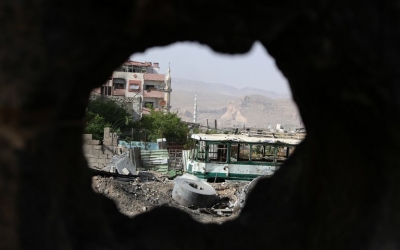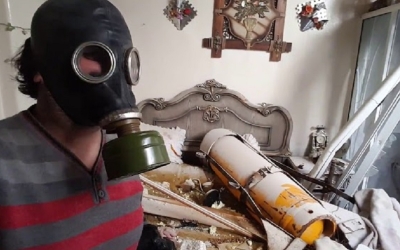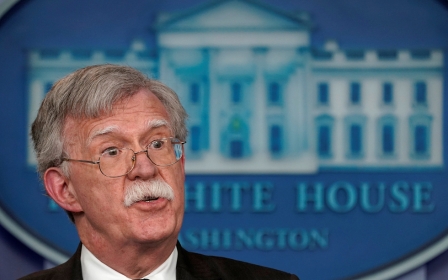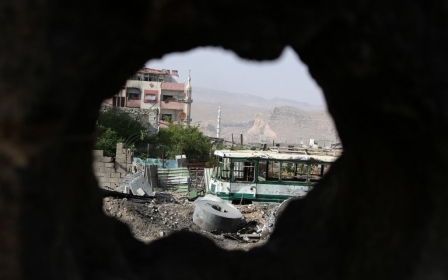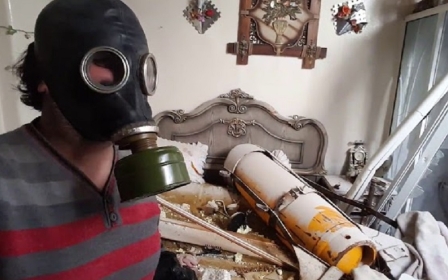Syria rejects watchdog report on deadly chlorine attack on Douma
The Syrian government has rejected a report by the world's chemical weapons watchdog confirming chlorine was used in an attack against the town of Douma in April 2018.
The Organisation for the Prohibition of Chemical Weapons (OPCW) said last Friday that there were "reasonable grounds" to believe toxic chemicals containing "reactive chlorine" had been used in the attack, which witnesses said killed 43 people.
It said two cylinders likely containing the chemical had smashed into a housing block in Douma, which was held by rebels at the time.
The team had no mandate to assign responsibility for the attack, but Western powers led by the United States blamed the government of Syrian President Bashar al-Assad, unleashing air strikes on regime military installations in response.
A spokesman for Syria's foreign ministry said on Thursday the government rejected the OPCW's findings in their entirety.
The official "called on member states of the OPCW to denounce such false reports, which lack credibility," accusing the OPCW of being "biased and unobjective," state news agency SANA said, in the first official response to the OPCW report.
The report was based on a visit to Douma by OPCW inspectors, the AFP news agency reported.
The team took more than 100 samples from seven sites in the town, to which the regime had denied them access for several weeks.
The OPCW said it reached its conclusions based on "witnesses' testimonies, environmental and biomedical samples analysis results, toxicological and ballistic analyses from experts".
Friday's report also denied the Syrian government's claims that the gas came from a rebel chemical weapons facility and storehouse in the area.
"From the analysis of the information gathered during the on-site visits to the warehouse and facility suspected of producing chemical weapons, there was no indication of either facility being involved in their manufacture," it said.
'A play put on by armed terrorist groups'
The foreign ministry spokesman quoted by SANA said investigators were falsifying information.
"This is evidenced by their denial that armed terrorist groups posses toxic chemicals even though they found such chemicals" in warehouses owned by rebels, SANA quoted him as saying.
The foreign ministry also said the investigation "ignored statements from witnesses who experienced this incident and who described the claim that chemical weapons had been used in Douma as having been a play put on by armed terrorist groups."
The OPCW has investigated multiple chemical attacks during the eight-year Syrian civil war, and has previously confirmed the use of "chlorine, sulphur mustard, and sarin as chemical weapons" in other incidents.
The organisation previously had no mandate to assign responsibility for attacks, but has since been given powers to investigate responsibility for all chemical attacks in Syria back to 2014.
Syria's multi-fronted war has killed more than 360,000 people since it began in 2011 with Assad's regime bloodily suppressing protests.
Middle East Eye delivers independent and unrivalled coverage and analysis of the Middle East, North Africa and beyond. To learn more about republishing this content and the associated fees, please fill out this form. More about MEE can be found here.


